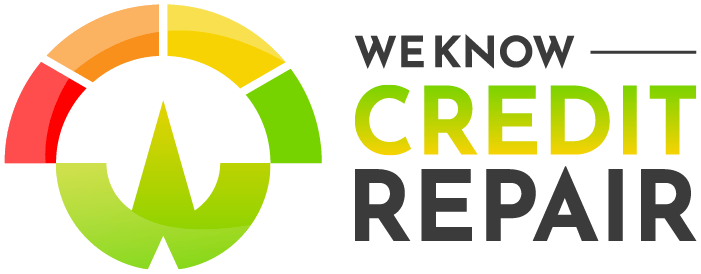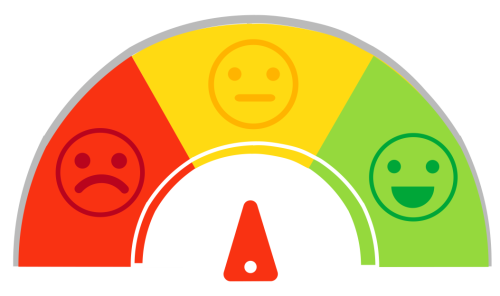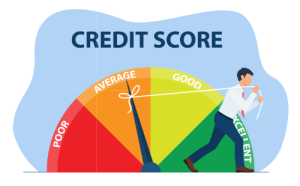Is 700 a Good Credit Score – Is 750 a Good Credit Score
Is 700 a good credit score. Today we’re going to discuss credit, how a credit score works and how scores are calculated.
We know that an excellent credit score is considered an 850 but you actually have good credit once you have about a 740, or higher and you can pretty much get whatever you want. So, 800 or higher is is more so just bragging rights but a lot of people want to achieve that. So, let’s talk about that. What creates a credit score? How are scores calculated? How to achieve a perfect credit score? How to do it by not getting yourself in debt?
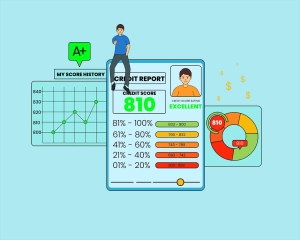
How Do Late Payments Affect Credit Scores
First and foremost, 35% of your score is based on payment history and a lot of people don’t understand how critical one late payment impacts their credit and when you’re calculating your credit score, the amount of the payment or the amount of the collection or whatever is not calculated into our credit scores. So, if you have a 30-day late payment on your credit, whether it’s for a five-dollar revolving card or a $2500 mortgage, it still has the exact same impact on your credit scores.
It’s really really important that you’re able to make your payments on time because, if you are not able to keep your payments current with your current creditors, then you’re not going to be able to achieve a seven-hundred-credit score. We all know life happens and sometimes we get can behind on our payments, things like that, lose our job, get COVID, and a number of factors can happen causing you to be late with your creditors. So, if you want to achieve good credit scores, it’s really important that you are able to stay current with your bills otherwise, because payments that are paid late will continue to drop your scores.
One 30-day late payment drops our scores typically 60 to 100 points and unfortunately, there’s not really much that can be done to remove the late payment from your credit if it truly was late. There are some options that a lot of creditors and banks are offering and lenders are being more understanding but typically, if you’ve had an account for five years and you missed one payment, then, they’re more likely to remove that out of goodwill but if you’ve made multiple after due date payments, the likelihood of them getting that deleted or removing that from your credit is is very slim even if you pay it off off and close it.
Are the late payments going to fall off my credit history? The answer is no. It’s still going to be on your credit report for seven years even after it is closed. So, paying and closing it is not going to delete it. It’s still on your credit for 7 years. If it’s positive and it’s closed, it actually stays on your credit report for 10 years.
When it comes to good credit scores making payments on time is the biggest factor. The higher your score is, the more impact it has on your score. It is 60 to a 100 points for the average impact and if you have an excellent 800 credit score, it’ll most likely drop your scores 150 to to 200 points.
Let’s say your February payment was late on your credit acount and your score dropped a hundred points once March reports on time, if you just missed one late payment and now you’re back current, you’re not going to get those hundred points back in March. It takes typically at least eight to 10 months to get those hundred points back and that’s just with one late payment. So, the more missed payments or payments made after the due date you have, the more it’s going to drop your scores and the longer it’s going to take for your credit scores to recoup from that late payment. So, making payments on the due date is very very important, it is key, it is critical.
Credit Utilization Ratio and Your Score
The second factor of your credit score which is 30% of your score is your credit utilization ratio. Now, this is confusing to a lot of people. Your credit utilization ratio is based on revolving credit which is credit card accounts or lines of credit not loans. So, paying down credit and bringing the balance down to 10% is better than 30%, which is what everyone teaches but the actual target is no more than 10 percent. So, keep your card balances below 10 percent. 6% is the target to maximize your credit score. It actually helps to have a little bit of a balance on your revolving cards and having a zero balance is not bad.
To be clear, you don’t have to carry a balance but having a zero balance will help, but if you do carry a balance the target is 6%. The target six percent actually gives you a few more points than having a zero balance on all of your cards if you have two cards that total to 10% utilization. Hopefully, you don’t have twenty cards but it doesn’t matter if you have two cards or twenty, your utilization at 30% still is factored the same way.
You’ve probably been on websites like Credit Karma or other companies telling you to get multiple cards DON’T listen to Credit Karma. Credit Karma is free because it’s a marketing website and you don’t need more cards.
If you have two cards, that’s all you need! Remember, it’s how you manage those two revolving cards and getting 20 cards is not going to get you to a good credit score quicker than having two. It’s managing those two. It’s not about getting into debt and having all these bills and being able to go shopping because that’s what it tends to do because the more cards you have, the more you want to go shopping. You’ll want to buy that big TV because you can get it for 0% interest at Best Buy or Victoria’s Secret gives you 15% off. However, if you buy it on your credit card, when you get your statement from Victoria’s Secret and you’re paying 24 to 29% interest it will hurt your pockets and your score.
It’s critical that you understand that as well. Again, you only need two, three at the very very most to achieve a perfect score. People that have a perfect credit score only have an average of three cards and they are major revolving cards not retail cards like high interest rate Finger Hut and Capital One linked cards which are the worst cards to have. Go for something like Merrick Bank, Discover, American Express, things like that. Basically, a credit card you can use anywhere and you want cards that are going to give you some sort of incentive like getting cash back or points or rewards or miles or something like that.
Okay. So, let’s do a quick recap. 30% of your score is your utilization, paying off cards does increase your score, the quickest way to decrease your scores is if you have a high credit utilization ratio and high balances on your cards. Paying down those revolving cards below 10% is going to give you the quickest, biggest boost on your scores.
Paying Off Loans vs Revolving Credit Cards to Boost Scores
Paying off a loan! This doesn’t necessarily hurt your credit so, if you’re paying off a vehicle and you’re trying to purchase a home or something, then, paying off a vehicle is going to help your DTI which is your debt-to-income ratio but please understand, it’s not going to boost your scores. Paying off cards, boost your scores, paying off loans does not. So, if you pay it off its actually going to close it which again is not going to necessarily hurt your credit but it’s also not going to boost your scores.
More often than not, it can actually drop your scores not significantly, but probably five to 10 points at the most or it could increase your scores a few points depending on how long you’ve had it and how many other open lines of credit you have. It can also drop your scores more significantly though if it is the only active positive one you have because once you pay it off and close it, that can actually drop your scores because now you don’t have enough credit.
Remember, 30% of your score is based on utilization, not loans, so paying off revolving accounts affect your credit utilization ratio, not things like mortgages, personal or vehicle accounts.

Length of Credit History
Alright, so the the next biggest factor, which is15% of your score is the length of your credit history?
So, a lot of people believe Credit Karma when it says, apply for another line of credit to help boost your scores even more. The truth is, whenever you open up another line of credit, it can actually drop your scores because 15 percent of your score is based on the average age of how long you’ve had an account open.
So, let’s say you have a open mortgage account, and your longest one has been open for 10 years and then, you have another mortgage you just opened two months ago, then that’s going to average out and bring your length down to somewhere around five years because now you have a brand-new mortgage and you have an older one that is 10 years old.
So, just be careful and only open up new lines of credit if you don’t have enough open lines of credit. You do need to have at least five to seven open lines of credit to obtain an 800 excellent credit score but for a 700 score you need at least three to five open lines of credit. You can’t get a good score if you don’t have any positive credit.
It’s important that you have a credit mix in those five to seven or those three to five open lines of credit and they need to be open at least two years or longer to build your score. Your credit mix can consist of two to three credit cards and two to three loans such as mortgages, vehicle, or personal.
Building Credit With Cards Instead of a Loan
Start by opening no more than two relvolving accounts. You only want to focus on major cards since 10% of your score is based on the types of credit you have. A lot of people don’t like to get credit cards but unfortunately, that is the best way to boost or build your credit, not getting a loan.
You don’t want to start off building your credit with loans, especially ones for a vehicle. The reason you don’t want your first line of credit to be for a vehicle is because the interest rate is going to be really high, especially if you don’t have any established credit.
Another reason you don’t want to start with auto loans is because when you pay off that auto loan it will be closed and you’re back to square one where you don’t have any credit again. On the other hand, when you pay cards off they’re still open unless you close them or you start paying late and the creditor closes it. So, always begin establishing your credit with a secured card.

Avoiding One Store Cards
Now let’s talk about one store cards. It’s best to stay away from cards like Capital One linked ones or Finger Hut high interest rate credit card accounts, basically any and all cards that can only be used at one store. Focus on a major cards. Cards like Finger Hut are the cards that get you in trouble because those are not they type of cards that can be used for emergencies. Cards like Kohls, even if it’s linked to a Capital One Credit Card, you still want to stay away from because people tend to use these Capital One linked credit cards just to go shopping especially for Christmas and end up getting themselves into trouble.
The Downside of Opening 90 Day Accounts
Let’s talk about opening 90 day accounts. If you open a ninety-day account, yes, its going to report on your credit reports for 90 days but you have to pay it down so that you don’t have any interest but you can’t keep doing that every 90 days. Just opening and paying it off, opening and paying it off. You’re never going to achieve that good credit score or it’s just going to take you a really, really long time to achieve that score. So, yes, stay away from those types of cards.
They try to get you in with that zero percent interest rate but it’s really not beneficial for you in the long run. It’ll save you money for short-term, sure but if your goal is to build your credit, stay away from those short term, 90 days, 6 months, pay here kind of offers.
The Importance of a Budget
If you don’t have a budget it’s really important that you create a budget. You’ve gotta be able to pay your bills on on the due date because ultimately, that’s what credit’s all about. If you go to a bank and you apply for a loan whether it’s a car or a house or whatever type it is, the purpose of credit is so that lenders, if they give you two hundred thousand for a house or $50,000 dollars for a car need to pull your credit reports they can see how you’re paying your other creditors.
Are you paying your other creditors on time? How much debt do you have and things like that. So, if they pull your credit and they see that you’ve recently been late on a 30-dollar relvolving card payment or your auto loan, then, you’re going to not be qualified.
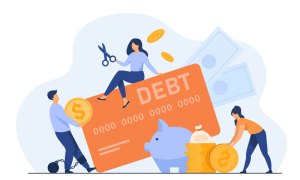
Keep in mind lenders are not going to approve you if you can’t pay your current bills when they are due. So, if you’re asking them to give you another bill they’re taking a huge risk, because you’re considered a high risk which is why your score is really low. If you’ve missed payments or you’re making payments after due date, you can’t go to a bank and ask them to give you a loan when you made a late payment three months ago.
Remember, it takes nine months to rebuild and get your scores back so when they see that you made a late payment in February and here it is May they’re not going to approve you for that loan or mortgage because you just made a late payment about two to three months ago.
Now, let’s say it’s May of next year and you’ve been on time for 12 to 15 months and you’ve had time to raise your score and you have those hundred points back, you’re now less of a risk. Even though the lenders can still see that you made a late payment over a year ago to them you’re not as big of a risk and they’ll approve you for that loan at a decent interest rate.
How Credit Scores Are Calculated
How are scores calculated you ask? Well, 35% of your score is payment history, 30% of your score is utilization, and 15% is length of credit history, 10% is the types of credit, and then the other 10% is inquiries and things like that which has a very small impact on your scores.

To achieve a good credit score, you cannot have any collections or charge offs. Really, that’s for a 700 or 800 score, no charge offs, no collections, no missed payments, no past due payments within the last two years, even though late payments stay on your credit reports for seven years, they actually only impact your score for the first one to two years depending on how many lates if it’s thirty, 60, or 90-days late. You need to have at least five to seven open lines of credit for an 800 credit score or at least 3 to 5 open lines of credit to have a 700 score with no missed payments or past due payments and your credit card. Keep utilization on two credit cards below 10%, not 30%. Anything above 30% is considered high credit utilization. Don’t open any new lines of credit. Accounts need to be open at least two years or longer.
It sounds easy but it’s not but just try to do your best. If you have any questions, please don’t hesitate to reach out to us.
